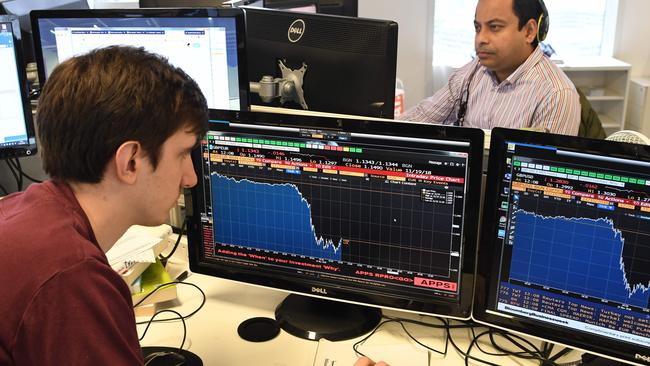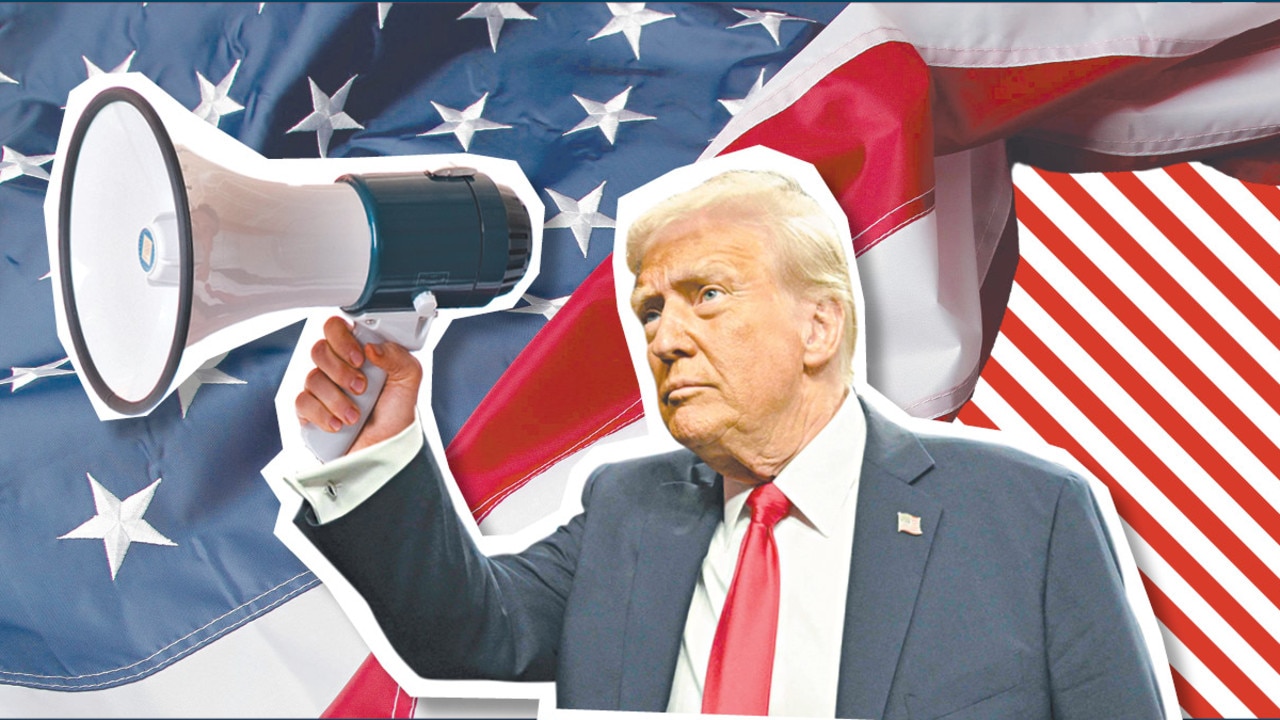Brexit unrest slams pound, UK banks
A wave of ministerial resignations over a planned Brexit deal has sparked a sell-off in the pound and UK banks.

The Brexit drama unfolding overnight sent the pound sharply lower and intensified the sell-off in British bank shares, some of the biggest losers from the UK’s decision to leave the European Union.
The British pound plunged 1.97 per cent against the dollar overnight, the currency’s biggest percentage fall since July 2016, after UK Brexit Secretary Dominic Raab resigned from the government. One pound bought as little as $US1.2730, a stark reversal from a rally in recent days on hopes Prime Minister Theresa May would succeed in pushing through a Brexit blueprint she hammered out with EU counterparts.
Mr Raab’s resignation heightened fears the deal would stall and the UK economy could be left floundering without a clear path toward an orderly Brexit. The yield on British government bonds fell, while the FTSE 250 index, which is made up of domestically oriented UK companies, ended the session down 1.3 per cent.
“This is a clear U-turn in sentiment when it comes to the pound,” said Petr Krpata, foreign-exchange strategist at ING Bank in London. “It’s increasing the odds that the deal may fall apart.”
Shares in Britain’s biggest domestic banks were hit particularly hard on worries that further political disruption or a no-deal Brexit would hamper economic growth or spark a recession. Barclays PLC shares dropped 4.1 per cent and the Royal Bank of Scotland Group PLC fell 9.6 per cent. The stocks slid after news that euroskeptics in Mrs. May’s Conservative Party had submitted letters calling for a no-confidence vote in her leadership.
If Britain crashes out of the EU without a deal, investors fear business investment will collapse and unemployment will rise, hitting banks’ bread-and-butter business lending and residential mortgage books. Falling UK rates also pressure already slim net interest margins. A final deal, in contrast, is seen as giving the economy boost as companies regain confidence.
While bank stocks globally have performed badly this year on fears of slowing global growth, shares in Royal Bank of Scotland Group PLC, Lloyds Banking Group PLC and Barclays PLC have fallen more than global peers, a kind of Brexit overhang that reflects the uncertainty that UK-EU negotiations might not pan out.
A related, lingering fear among investors is that Mrs. May’s party will lose power and be replaced by the Labour Party, whose latest manifesto includes pledges to consult on breaking up RBS and to make it harder for banks to shut branches.
“The risk is ongoing political dislocation. Investors would see a Labour government as negative for banks,” said Joseph Dickerson, a bank analyst at Jefferies Group.
So far this year, Brexit’s effect on markets has remained mostly a UK affair, though some European stock markets turned negative on Mr. Raab’s resignation news Thursday. Germany’s DAX index fell 0.5 per cent while France’s CAC 40 was down 0.7 per cent. The euro was broadly flat against the dollar at $US1.1317.
The S&P 500 was flat early Thursday.
“At this point this seems like a UK-centred, idiosyncratic issue rather than a global problem,” Mr Krpata said.
Investors are staying on guard, as the current situation resurrects memories of 2016 when UK’s vote to divorce from the European Union rocked global markets.
Work and Pensions Secretary Esther McVey resigned shortly after Mr Raab, if other senior ministers follow their lead, Mrs. May could face an open challenge to her leadership, analysts say. Mrs. May is already facing a challenge in pushing her Brexit package through Parliament.
“We think Dominic Raab’s resignation is a big blow, without question,” Jordan Rochester, currency strategist at Nomura, wrote in a note to clients. “Right now the market is trying to price in a level of uncertainty that is extremely high. That is bad for the pound.”
ING’s Mr. Krpata said that if Mrs. May is toppled in a leadership contest, the pound could fall to as low as $US1.22.
On the flip side, if Mrs. May hangs on to her job and the deal manages to pass the various political hurdles, a strong rally could be in the offing given the pervasive pessimism surrounding the UK
Mike Amey, head of sterling portfolios at Pimco, expects in that case the Bank of England would raise interest rates more than is currently priced in by markets — two rises over the next two years — which would in turn, support the pound. It would also increase profitability at the banks.
UBS analysts, also anticipating two rate increases, said UK economic growth should rebound next year if Mrs. May succeeds in a deal. “No deal would likely entail significant economic disruption and a more cautious BoE,” they wrote in a note.
Dow Jones



